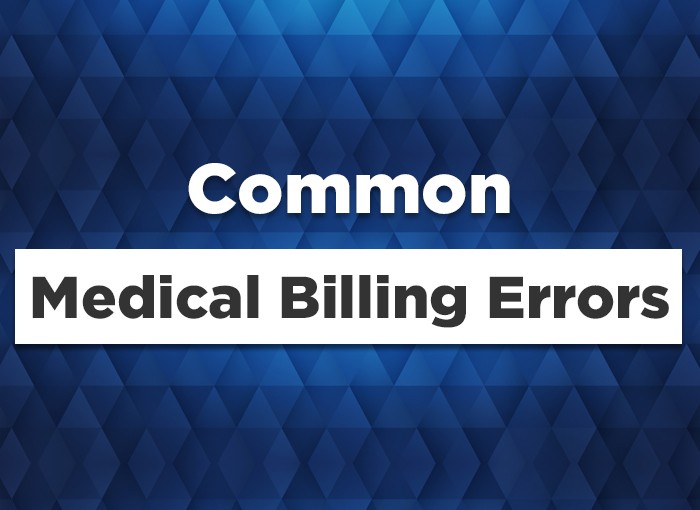The healthcare industry is no small field to work in. It brings with it the potential that you must look out for when starting your own practice or clinic. Every healthcare provider works around some goals for enhanced revenue and the best patient care possible. Whether you are conducting the billing in-house or have outsourced billing services to reduce errors, the process has to be executed smoothly. In the case of any disruptions, while affecting your reimbursements, it also negatively impacts your workflow, patient satisfaction, and even the revenue turnout.
The medical billing errors are one of the most common issues in revenue cycle management. It could be a misplaced modifier, an incorrect piece of patient information, or even an outdated code that could cause delayed reimbursement, or even the claim to be denied. Through this blog, we shall work out the issues with the erroneous claim submissions, their impacts on a practice’s revenue cycle, and how to avoid them as best as possible.
Impacts of Medical Billing Errors
For each practice, clinic, or hospital, medical billing is the core of their entire existence. In terms of the revenue generation, it runs the managerial cycle for your practice. When your billing execution is affected, it impacts more than just the monetary values. Some major effects that a practice observes due to erroneous billing are:
Claim Rejections or Denials:
Inaccurate claim submissions have the highest denial rate. The only problem is with the mistakes that could have been easily avoided. The coding errors, missed or inaccurate information, or even duplicate submissions could cause claim denials. Which means that the denied claims management would take even more of your staff’s time.
Revenue Slips:
Consider the lost or delayed revenue as the slipped reimbursements, or the revenue leakage, that could directly affect your annual income generation. It might seem only a few dollars at one time, but the bigger picture shows that the effect has been greater than anticipated.
Compliance at Risk:
With the inaccurate claim submission comes the question of whether the HIPAA regulations are being accurately followed. The errors in the coding and other details could cause compliance issues or even trigger audits. It intensifies the situation of your bad claims that are billed for Medicaid, Medicare, or other payers.
Unsatisfied Patients:
Your one billing error can have an impact on your patients. A super bill, or wrong services billed, could result in their frustration with your practice. Even the denied insurance could trigger their anger towards your billing team for inappropriate handling, which ultimately makes them lose trust in your services.
These impacts put a spotlight on why it is so important to consider the efficiency of your billing team, or even for outsourced billing solutions to reduce errors and maintain your hard-earned reputation.
The Common Medical Billing Errors in Healthcare
Mistakes can have their levels, prominent ones and less prominent ones. Their impacts make them more visible, whether you spot the change in the revenue, the documentation, or even in the increased denial or claim rejection rate. The following are some of the common medical billing errors that most frequently surface in your billing process:
Inaccurate Information
Wrong patient information in the claim has the highest error ratio. The inaccurate number, misspelled names, locations, or typing mistakes, outdated insurance details, all contribute to the claim rejections. These are really simple to begin with, but with greater impacts than comprehended.
Un-matched Coding
Up-coding, Down-coding, wrong digit input, that’s all it takes. One mistake and it turns the rendered service into an entirely different one. These mistakes result in claim denials and unwanted audits.
Missed Documentation
The lack of proper documents to back the given healthcare services gives you a setback regarding the claims being turned back. It is lost time and effort, which you would need to put back into getting the claim accepted.
Duplicate Submissions
There are instances when the same claim is submitted more than once by error. It is destined to be denied by the payer as soon as it is received.
Using Outdated Codes
The coding details are updated every year. Putting in the codes that are not in use anymore makes the claim go into the denied pile.
Multi-Tasking that Leads to Coding Errors in Medical Billing
For providers across the States, it is important to understand that their staff are overburdened with managerial tasks and billing execution. As they handle the patient care as well as the billing, it becomes difficult to accurately handle the patient and billing needs simultaneously. This delivers inaccurate bills to the patients, which they least expect from a practice such as yours. But there are multiple ways that you can reduce and avoid these billing errors, whether you have billing handled in-house or have it outsourced to a third-party billing service provider.
Ways to Avoid Medical Billing Errors
We understand that the erroneous claim filings never turn out to be accepted ones. The mistakes in the denied or rejected claims are mostly avoidable. With the help of the right systems and tools, training, and support, you can work better on your denied claims management and execution to ensure that your maximum claims are accepted. Some of the few practiced ways that easily help you reduce coding errors in medical billing:
Review Patient Information at Check-In
The foremost task is to ensure the patient’s information verification at every visit. This saves you the hassle of taking hold of them on the phone or by email to acquire confirmation afterwards.
Up-to-Date Coding
Give regular updates to your staff about the latest CPT, ICD, and HCPCS coding updates. Makes sure that their coding information is up to the mark to avoid any mistakes in the services rendered.
Documentation Checklist
Prepare a documentation checklist to ensure that your staff complies with the required paperwork that justifies the services given. This way, they will make sure that their list is all checked before submitting a claim.
Acquire Up-to-Date Billing Software
Utilizing old systems may also be a hassle in executing absolutely correct claims. Modern billing software helps with the automatic detection of typing errors, missing sections, mismatched entries, and other flags, preventing you from submitting the claim.
Regular Internal Audits
Running internal claims quality assurance is an intelligent way to spot the issues in the claims and their causes. It will help incline your staff towards better billing execution.
Staff Training
Organize regular staff trainings to make sure that they are knowledgeable in all the regulatory and coding updates as they come. This will be a suitable way to ensure that they are updated at all times about any informational updates.
Partner with a Professional Billing Service Provider
To avoid the in-house billing hassles. These days, practices have started to opt for outsourced billing to reduce errors and ensure that they gain maximum revenue generation out of their claim submissions. Outsourcing medical billing services is the most beneficial decision in terms of your revenue cycle management. It benefits you as:
- You get access to the expert billers at such companies, who handle your complete billing process, from eligibility verification to payment issuance.
- The best denial management you can get is from the experts of healthcare billing service providers. They are not only practiced billers, but also have industrial experience in the best ways to tackle claim denials.
- Their support does not end if you require any changes or upgrades. Whether you expand or downsize, their customized solutions shall accommodate you accordingly.
- Their specialized billing solutions are the key to target maximized first-pass rate for your claims. Now you can sit back and focus on the patient care that is your mantra.
Conclusion
Medical billing is mostly considered to be a back-end task. While it is managed beyond the general eye of the patient, it directly influences the operations and the revenue of a practice or clinic. Medical billing errors are never favorable, but can be avoided as best.
The possible errors mentioned above, and their antidotes, have helped healthcare reorganizations target better revenue generation, fewer denials, and increased first-pass rate. By acquiring the professional services, you can reduce your stress for denied claims management, enhance your patient satisfaction, and ensure smoother operational efficiency.



